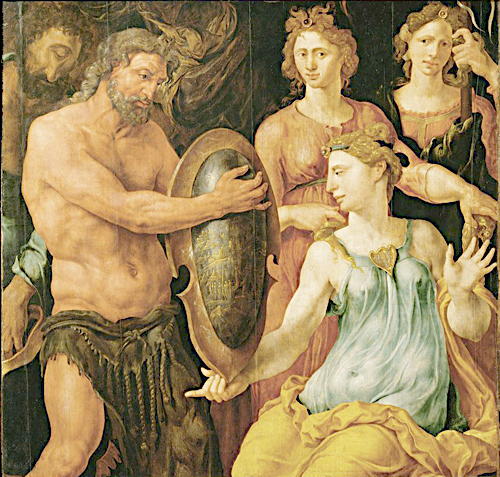Undergraduate Seminar: Words about Images: Western Ekphrasis as Critical Model

From Homer and Philostratus to John Ashbery and Rachel Zucker, poets have described visual art. Such poetic description, ekphrasis, is indeed central to the Western canon. Ekphrasis may be more broadly understood, however, as any act of rendering the visual in words. Ekphrastic tradition therefore hangs over or perhaps even contains any practice of art history or art criticism. It is also a model for all critical practice, for to approach a visual object on textual terms is inevitably to be critical, to make differential decisions about that object. Taking ekphrasis as a central paradigm for any critical process in western traditions, this seminar examines the productive-not merely mimetic or reproductive-result of such work, its charged surplus.
Over the course of the semester, we will examine how different kinds of visual material and different contexts of reception have demanded different kinds of ekphrasis. We will study ekphrases produced in the contexts of the studio visit, the museum, art publications, and art historical scholarship alongside canonical poetic ekphrases drawn from multiple linguistic traditions, ancient and modern (texts will be available in both original and translation). Older texts, including authors from Homer to Diderot, complement newer texts by Anita Albus, Svetlana Alpers, John Ashbery, Roland Barthes, Anne Carson, Jacques Derrida, Gérard Genette, Maurice Merleau-Ponty, W. G. Sebald, Hans Sedlmayr, Susan Sontag, Miguel Tamen, Rachel Zucker, and others. Each student will perform a conventional contemporary ekphrasis resulting from a visit to at least one museum, gallery, or artist's studio.
Estimated cost of materials: $0-50.
Textbook: Heffernan, Museum of Words: The Poetics of Ekphrasis from Homer to Ashbery
Category for Concentration Distributions: D. Europe and the U.S., 4. Modern and Contemporary.